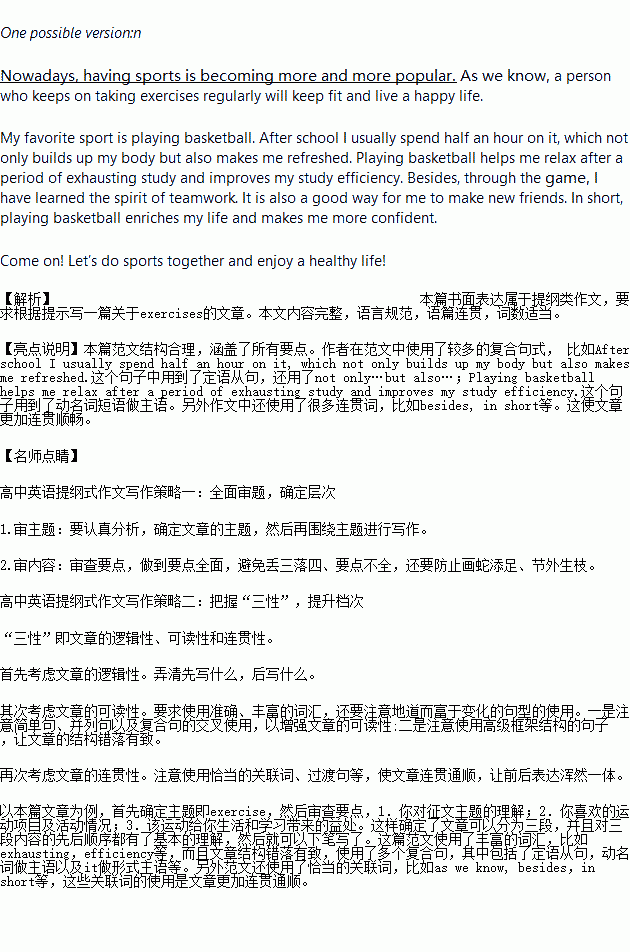题目内容
最近,你校英文报在举办主题为“Exercise an hour every day,healthy life for a lifetime.”的征文活动。假定你是李华,请根据以下内容用英语写一篇短文。
1.你对征文主题的理解;2.你喜欢的运动项目及活动情况;3.该运动给你生活和学习带来的益处。
注意: 1.词数100左右;2.可以适当增加细节,以使行文连贯。
3.开头语已写好,不计入总词数。
Nowadays,having sports is becoming more and more popular._____________________________
____________________________________________________________________________________________________________________________________________________________
练习册系列答案
 阅读快车系列答案
阅读快车系列答案
相关题目



 try to remember good moments to making me feel better. When I miss some friends or family member I also try to remember those happy moments we were spent together. In my opinion, the best way to help people be happy in life are to make them laugh every time we are feeling down. Also by give them love you can make them feel sure about themselves.
try to remember good moments to making me feel better. When I miss some friends or family member I also try to remember those happy moments we were spent together. In my opinion, the best way to help people be happy in life are to make them laugh every time we are feeling down. Also by give them love you can make them feel sure about themselves.